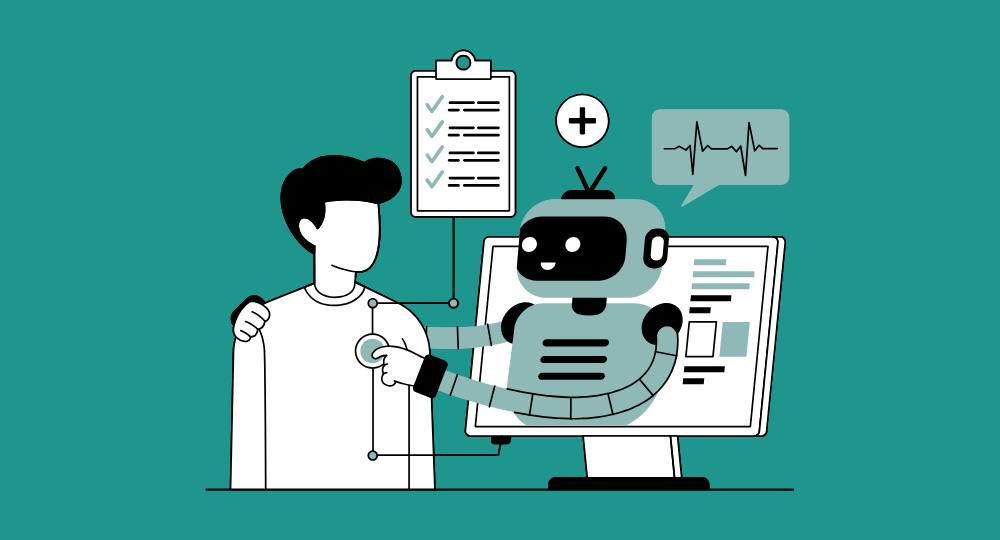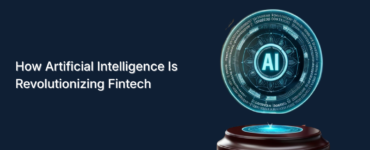Modern healthcare is overwhelmed with rising patient demands, increased chronic disease cases, physician burnout, and administrative bottlenecks. In this high-pressure environment, AI Agents in Healthcare are proving to be more than a technological upgrade—they’re transforming the entire care ecosystem. According to a 2025 McKinsey report, AI-driven solutions can save the global healthcare industry up to $360 billion annually, primarily through operational optimization and early diagnosis.
But what exactly do these AI agents do? Think of them as intelligent co-workers that don’t just follow rules—they learn, adapt, and evolve. Whether it’s flagging anomalies in medical images, predicting ICU admissions, or handling hospital logistics, AI agents are driving better clinical outcomes and operational efficiency without increasing staff load.
What Are AI Agents in Healthcare?
AI agents fit easily into current systems to help improve patient care, decrease human mistakes, and make healthcare delivery more efficient. They assist in diagnosing diseases, predicting when a patient’s condition might worsen, and tailoring treatment plans. These agents also help manage resources better by anticipating patient numbers and organizing staff schedules, ensuring hospitals run smoothly. As AI technology grows, its role in healthcare will likely expand, offering more advanced solutions focused on patient care and safety.
Healthcare Automation with AI: Taking Repetition Off the Table
One of the biggest time-killers in healthcare is repetitive tasks. Booking appointments, managing schedules, updating records, billing—these are essential, but they pull medical staff away from critical decision-making. Healthcare automation with AI steps in to handle these tasks.
Imagine an AI agent that automatically updates patient records after every consultation, flags prescription conflicts, and even schedules follow-ups based on recovery timelines. That’s not a futuristic vision—it’s already happening in many hospitals. Automation not only improves speed but ensures consistency, reducing human errors in data entry or communication.
AI in Patient Care: From Monitoring to Personalization
Beyond paperwork, AI in patient care is a game-changer. With the help of wearable devices and smart sensors, AI agents monitor patient vitals in real time, alerting doctors to early warning signs—sometimes even before symptoms appear.
Let’s take chronic condition management. AI agents can track blood glucose patterns for diabetic patients and adjust dietary plans or medication schedules based on behavior and biometric data. This kind of personalized care increases patient engagement and improves recovery rates. The best part? It doesn’t burden doctors but assists them with timely insights.
AI for Clinical Decision-Making: Enhancing Precision, Not Replacing Doctors
Clinical decisions are high-stakes. Whether it’s diagnosing a condition or choosing the right treatment path, every decision has long-term implications. This is where AI for clinical decision-making plays a pivotal role.
By analyzing massive volumes of patient history, lab results, and medical literature, AI agents for medical diagnosis offer evidence-based suggestions. They can detect patterns that are easily missed by the human eye—especially in complex cases like rare cancers or overlapping chronic illnesses. Still, these agents don’t act independently; they augment physician intelligence, providing recommendations, not prescriptions.
For example, IBM Watson for Oncology evaluates thousands of cancer studies and patient records in seconds to suggest treatment options. This doesn’t replace oncologists—it empowers them to make more informed, faster decisions.
AI Improving Hospital Efficiency: A Real-World Impact
AI isn’t just working at the patient level—it’s helping at the system level too. From hospital management to emergency room triaging, AI improving hospital efficiency is becoming a core metric for digital transformation in healthcare.
Some hospitals now use AI agents to predict bed occupancy based on admission trends. Others use them to optimize inventory for pharmaceuticals and surgical equipment. The result? Fewer delays, smoother coordination across departments, and better use of available resources.
When AI identifies bottlenecks—like delays in lab results or discharge summaries—it can help teams respond before those issues impact patients. These micro-optimizations collectively improve the overall healthcare outcomes.
Healthcare AI Solutions: Bridging Skill Gaps in Underserved Areas
One of the most powerful applications of Healthcare AI solutions is in remote or underserved regions. AI agents can help healthcare workers make accurate diagnoses without needing a specialist on-site. For example, AI-powered X-ray tools are being used in rural India and parts of Africa to detect pneumonia or tuberculosis, simply by uploading an image through a mobile app.
These tools not only increase access to quality care but reduce reliance on overburdened urban facilities. In other words, AI agents in healthcare aren’t just about convenience—they’re about equity and scale.
A Smarter, Stronger Healthcare System with AI Agents
The integration of AI agents in healthcare is not about flashy tech or science fiction—it’s about solving real problems with smart, scalable solutions. From improving clinical accuracy to reducing administrative overload and expanding access in underserved regions, AI is silently reshaping the healthcare experience for both professionals and patients.
What makes this shift even more important is its long-term sustainability. These systems continue to learn, adapt, and deliver better results the more they’re used. For hospitals seeking better outcomes, faster processes, and improved patient satisfaction, investing in AI-powered healthcare systems isn’t just smart—it’s essential.
FAQs: AI Agents in Healthcare
1. What are the biggest challenges in implementing AI agents in healthcare?
The primary challenges include data privacy concerns, integration with existing hospital infrastructure, and the need for large, high-quality datasets to train AI models. Additionally, staff training and change management are crucial for successful adoption.
2. How do AI agents support diagnosis without replacing doctors?
AI agents assist in analyzing complex data like imaging scans, patient history, and lab results to identify potential diagnoses. Doctors then review these insights and make the final call, ensuring human oversight remains central to care.
3. Can AI help in predicting disease outbreaks or patient risks?
Yes. AI agents in healthcare can analyze patient records and public health data to identify trends that may point to disease outbreaks or high-risk patients. This enables early intervention and resource planning at a population level.
4. Are AI agents useful in emergency care settings?
Absolutely. In emergency rooms, AI can prioritize critical patients, manage workflows, and ensure faster access to test results. This improves response time and supports doctors under pressure, especially during peak hours or public health crises.
5. What types of hospitals are best suited for AI adoption?
While large, urban hospitals often lead in AI adoption, smaller clinics and rural hospitals benefit greatly too—especially through Healthcare AI solutions that offer remote diagnostics, triage assistance, and workflow automation at lower costs.




